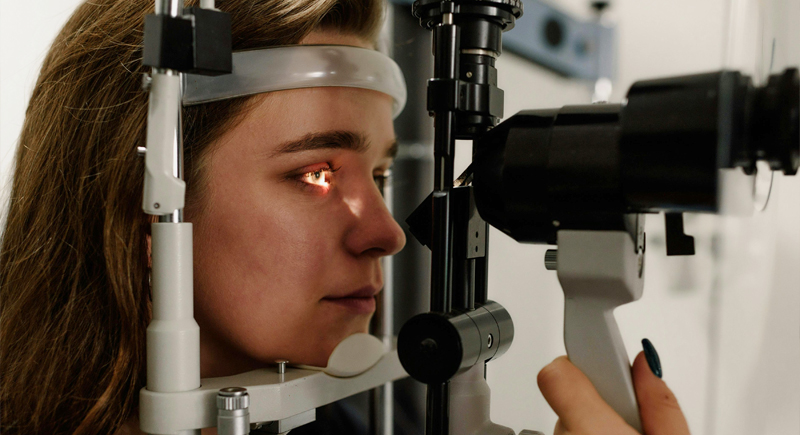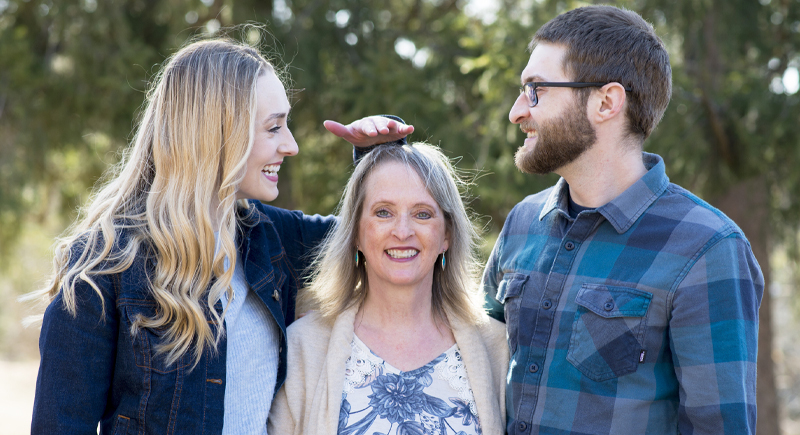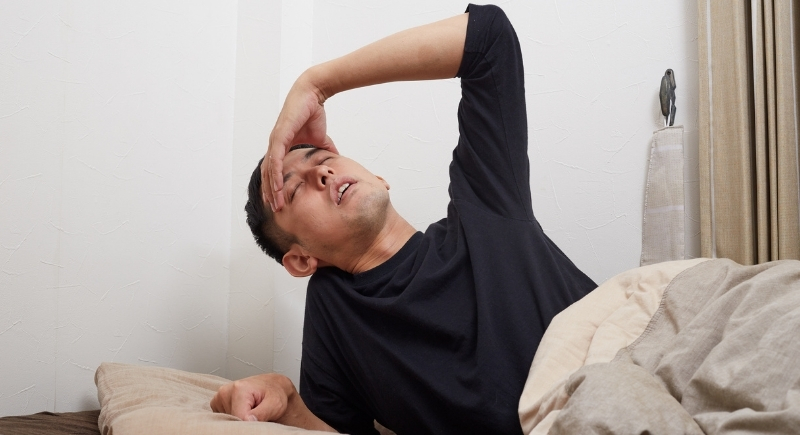16 Alarming Symptoms People Start Experiencing When They Hit 40
Turning 40 is like entering a new phase where your body suddenly feels the need to remind you that it’s been around a while. Some changes are expected, others not so much, but one thing’s for sure—it’s a time of adjustment. While some of the symptoms can be a little alarming, they’re often just part of the natural aging process. Here’s what to expect when you hit this milestone and how to roll with it.
Weight Starts to Stick Around for No Reason

If you’ve noticed that your waistband feels a little tighter for no apparent reason, welcome to the club. Around 40, your metabolism begins to slow down, and it feels like even a salad is now going straight to your hips. It’s not your fault—it’s just biology. The combination of slower metabolism and muscle loss makes it harder to stay trim, but adding some weightlifting into your routine might help keep things in check.
Energy Levels Take a Dip

Credit: iStockphoto
You used to run on energy drinks and late nights. Now, you’re running on coffee and frequent naps. Fatigue becomes a regular companion as you approach 40, and no, it’s not just because you’re more “mature” now—it’s partly because your body’s metabolism and hormones have slowed down. Managing stress, getting more sleep, and eating nutrient-dense foods can keep your energy levels from flatlining.
Sleep Becomes More Elusive

Credit: pexels
Getting a solid 8 hours of sleep at 40? Not so much. For women, perimenopause and hormone fluctuations wreak havoc on sleep patterns, leading to restless nights and early morning wake-ups. Men, too, face sleep issues as testosterone levels drop. You might not need an alarm clock, but not for the reasons you think. A consistent bedtime routine and cutting out late-night screens might help restore some quality rest.
Joint Pain Becomes More Noticeable

Credit: pexels
That occasional backache or knee stiffness becomes more frequent as you age. By 40, you may start noticing joint pain, especially in areas like the knees, back, and hips. This is due to the natural wear and tear on cartilage. Staying active, stretching regularly, and adding strength training to your routine can help keep those joints moving.
Skin Starts to Lose Its Youthful Glow

Credit: pexels
Fine lines, sagging, and even age spots become more pronounced in your 40s. This is the result of reduced collagen production and the cumulative effect of sun exposure over the years. While you can’t reverse it entirely, keeping up with a good skincare routine—moisturizing, applying sunscreen, and using antioxidant-rich products—can slow the process and keep your skin looking its best.
Digestive Issues Become More Frequent

Credit: pexels
After 40, your digestive system might start throwing a few more curveballs. Bloating, acid reflux, and constipation become common complaints as digestive enzymes decrease, and stomach acid production slows. You can manage this by eating smaller, more frequent meals, drinking plenty of water, and incorporating fiber into your diet to keep things running smoothly.
Your Vision Is Getting a Bit Fuzzy Up Close

Credit: pexels
Reading fine print or scrolling through your phone without holding it at arm’s length? Not as easy as it once was. Presbyopia, or the inability to focus on objects close up, usually kicks in around 40. Your eye’s lens starts losing flexibility, which means those reading glasses you’ve been avoiding might suddenly become your new best friend. It’s a rite of passage, really.
Headaches Start to Show Up Like Uninvited Guests

Credit: pexels
Whether it’s a dull throb or a full-blown migraine, headaches can become more common as you hit your 40s. Hormonal changes, stress, and sleep disturbances are often to blame. The good news is that you don’t have to just suffer through them. Identifying triggers and trying relaxation techniques can go a long way in keeping those pounding headaches at bay.
Your Brain Isn’t as Sharp as It Used to Be

Credit: iStockphoto
You’re not forgetting things because you’re getting older; you’re forgetting things because life is busier and stress is a constant companion. Memory lapses or “brain fog” can happen as you get older, but there’s also a natural slowing of cognitive function that can start in your 40s. Keeping your brain active with puzzles, reading, or learning a new skill can help keep it sharp.
Losing Muscle Mass Feels More Like Losing Strength

Credit: iStockphoto
You might notice that lifting the grocery bags or carrying your kids around gets a little more challenging. By 40, you’ve likely begun to lose muscle mass, a process that continues over the years. Strength training isn’t just for bodybuilders—it’s crucial for maintaining muscle mass and metabolism. Plus, it can help you feel stronger and more confident when picking up that heavy box from the attic.
You May Start Shrinking (But Not in a Good Way)

Credit: iStockphoto
No, you’re not imagining it—you may actually be getting shorter. After 40, the discs in your spine begin to lose fluid and compress, resulting in a slight decrease in height. While it’s not dramatic (usually), standing tall can help maintain your posture and spine health. And no, you can’t blame the kids for this one.
Hair Thinning Starts to Feel Personal

Credit: iStockphoto
By 40, many people start noticing that their hair is thinning, or it’s becoming more gray than you remember. It’s just part of the aging process, but that doesn’t make it any less frustrating. Hormonal shifts are the main culprits here. Stress, diet, and genetics also play a role. While you can’t stop the gray (well, not easily), taking care of your hair through good nutrition and regular scalp massages can help keep it healthier.
Temperature Sensitivity Becomes a Real Thing

Credit: iStockphoto
You used to breeze through the hottest days of summer or the coldest nights of winter. Now, it’s like your body has lost its ability to adapt. Whether you’re constantly shivering or sweating like you’re in a sauna, temperature sensitivity can be a frustrating symptom of getting older. It’s linked to changes in circulation, but dressing in layers and staying hydrated can help manage it.
Mood Swings Can Happen for No Reason

Credit: pexels
You’re not just tired—your emotions are all over the place, too. From feeling great to suddenly being inexplicably irritable, emotional ups and downs can become more pronounced as you get older. For women, perimenopause plays a significant role, while men can experience mood shifts related to drops in testosterone. Recognizing that mood swings are normal and finding ways to manage stress can help keep your emotions in balance.
Hangovers Suddenly Feel Like Hospital Stays

Credit: Getty Images
Remember when a hangover just meant a rough morning? Not anymore. After turning 40, those aftereffects can feel like a week-long ordeal. Your body takes longer to process alcohol, leaving you battling dehydration, headaches, and fatigue. It’s a reminder that your recovery time is slowing down.
Your Libido Isn’t on the Same Schedule Anymore

Credit: Canva
Back in your youth, your libido was predictable and always ready to play. After 40, though, your body might not be as enthusiastic. Hormonal changes and stress can affect your drive, leaving you frustrated. It’s just a shift in how your body functions over time. Regular exercise and open communication can help.